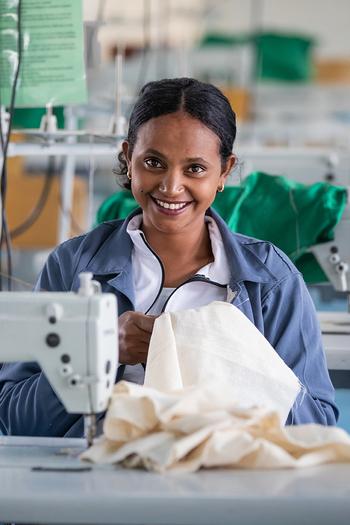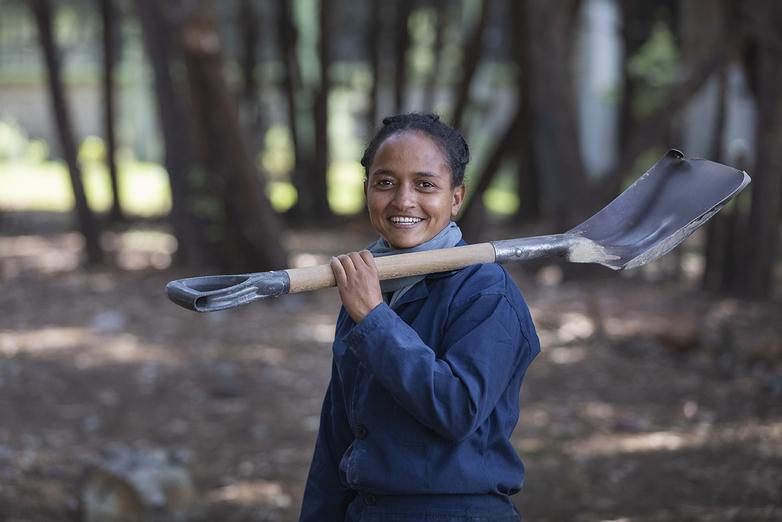Context
Ethiopia is the one of the largest host countries in Africa. However, many refugees are unable to provide for themselves. At the same time, the country has to cope with more than 4 million internally displaced people due to internal conflicts. Moreover, young people are hit particularly hard by unemployment, as vocational training programmes and employment opportunities are often inadequate.
Objective
Employment prospects for refugees, IDPs and host communities have improved.
Approach
The project focuses on four fields of action:
Supporting the implementation of national refugee legislation: It supports the Ethiopian Ministry of Labour and Skills and the Ethiopian Refugee and Returnee Service in mainstreaming the inclusion of refugees in the vocational training system and the labour market. The aim is to put Ethiopian refugee legislation into practice.
Expanding access to vocational training: Vocational schools are being turned into inclusive vocational schools where refugees and Ethiopians, including internally displaced people, learn together. The training courses are geared towards the needs of the labour market. Continuing professional development enables TVET trainers to improve their technical and soft skills. There are new training courses in and around refugee camps.
Promoting employment: The project supports TVET colleges in setting up business incubators and advises groups of entrepreneurs on how they can implement business ideas. Through partnerships with companies, it promotes the transition from training to employment and also young women’s access to technical training courses and professions.
Creating social cohesion: The programme is expanding psychosocial services for people affected by conflicts. Through community activities, it promotes interaction between refugees, internally displaced people and the host population.

